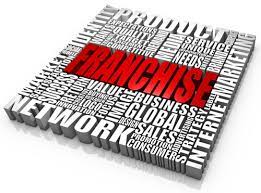A-Z glossary of Franchise Terms
The following glossary contains an alphabetical list of the common terms used in franchising. If you have questions about any of these terms or would like a definition for a term not included here please let us know.
Advertising levy
The advertising levy covers the franchise system’s advertising and promotional activities. It is usually calculated as a percentage of the franchisee’s total revenue
Agreement
The franchise agreement is the legal written document that governs the relationship between the franchisor and franchisee. It specifies the terms of the franchise contract such as rights and responsibilities of the parties, fees and payments, territory and duration of agreement.
Area Developer
An area developer is similar to an ‘Area Franchisee’, however in addition to owning and operating a specific number of franchises they are also responsible for bringing a new franchise concept to a specific geographical area. An area developer can also act as a ‘Master Franchisee’ in which case they are also responsible for the recruitment and management of sub-franchisees.
Approved Site
The approved site is the location that the franchisor chooses, for the franchisee’s set-up, which meets the criteria of the franchise unit.
Area Franchisee
An area franchisee purchases the right to open and operate a specified number of franchise locations, in a defined geographical area, during a defined period.
Australian Competition and Consumer Commission (ACCC)
The Australian Competition and Consumer Commission, often shortened to ACCC, is an independent statutory authority that is responsible for enforcing legislation and the Competition and Consumer Act 2010. Its role is to enforce the consumer and competition statutes of Australia. As part of this, the ACC regulates the Franchising Code of Conduct – this is a mandatory industry code, which you can read more about here.
Business Format Franchise
A business format franchise is where the franchisor grants a business format, operating system, and trade mark to a franchisee. This type of franchising is often found in automobile services, catering and hotel services, business services, home services, and educational services.
Business Plan
A business plan is a document prepared by a franchisee, which summarises its operational and financial goals and objectives for the franchise, and contains detailed plans and budgets showing how these objectives are to be achieved. This document is central to any application for finance.
Capital
Capital is the wealth required by a franchisee. See ‘Financial Capital’, ‘Human Capital’ and ‘Working Capital’.
Collateral
Collateral is a form of security that the borrower may offer the lender to guarantee a loan or other credit. Collateral can be resources, belongings, or something of wealth and value to the borrower. If the borrower fails to pay back the credit, the asset acting as collateral may become subject to seizure. The lender can then sell this to comply with the original contract. This ensures payment or performance of the obligations stated in the lending agreement.
Copyright
Copyright in franchising relates to the right of a person to use operations manuals, franchise manuals, promotional and advertising material pertaining to the particular franchise brand name and logo. A copyright, or aspects of it, may be transferred from one party to another through a legal agreement. The symbol for copyright is ©.
Disclosure Document
A disclosure document is a full and accurate written disclosure of all information material to the franchise relationship. This ensures a potential franchisee is made aware of the financial implications and legal requirements of any franchise agreement, before signing a legally binding contract.
Earnings Claims
Earnings claims are the actual or forecasted franchise sales, profits, or earnings stated by the franchisors.
Equity
Equity is the total value or worth of an asset. On a balance sheet, equity is calculated as the total assets minus the total liabilities. In real estate, the owner’s equity is the value of the house minus the remaining mortgage or loan amount due. In a company, the ownership interest takes the form of stocks or shares in the company.
Feasibility Study
A company that is thinking about becoming a franchisor carries out a feasibility study to assess the market factors and business issues that can or may influence their business in the future. The purpose of the feasibility study is to uncover any hidden material not yet discovered and enables a potential franchisor to critically assess the future success of their business expansion..
Financial Capital
The financial capital needed for the initial investment, includes the licensing fee and the initial working capital of the franchise.
Franchise
A franchise is an agreement in which a firm (a franchisor) enters into a contract with other businesses or individuals (franchisees), granting them the authorization to operate in the distribution of goods and services, under the franchisor’s trade name and guidance, in exchange for a fee.
Franchise Attorney
A franchise attorney is a lawyer who specialises in franchising law. It is advisable to have a franchise attorney look over all franchise documents, before deciding to sign a franchise agreement.
Franchise Council of Australia
The FCA is a membership body which represents franchisors, franchisees and service providers within the franchise industry. It is a voluntary organisation and is open to any organisation within the sector.
Franchise Consultant
A franchise consultant is a business guide with expertise in the franchising industry. They give advice on topics such as franchising operations, companies, and relationships. A franchise consultant can advise on the best options available when expanding a business as a franchise opportunity, or in deciding on buying into a franchise industry.
Franchise System
A franchise system refers to the different types of franchises operating within a given region. For example, Subway would be considered a franchise system. The term also involves the administrative centre of the franchise and franchised units, much like a company’s head office administration center.
Franchise Unit
A franchise unit refers to each individual outlet within a franchise system. A franchisee can purchase one or more franchise units from the franchisor. A franchisee can purchase the right to either a single-unit franchise or a multi-unit franchise.
Franchisor
A franchisor is an individual, partnership, or corporation who grants an investor (the franchisee), the right to conduct business under their trade name, operational methods and organisational systems. The franchisor also provides support to the franchisee, by advising, training, and assisting in advertising, marketing, and financing roles. The franchisor aims to expand the business by offering franchisees the right to use these business methods.
Franchisee
A franchisee is an individual, partnership, or corporation who purchases the right from the franchisor, to conduct business under their trade name. The franchisee pays upfront and ongoing fees to the franchisor, in return for the license to market their product or service using their operating methods.
Initial Investment
The total initial investment is the capital required to start the franchised business. It includes the initial fee, and other costs such as property, inventory, equipment, personnel, and the working capital required for the operation of the franchise until it becomes profitable.
Initial Franchise Fee
The initial franchise fee is a once off lump sum paid by the franchisee to the franchisor upon signing the franchise agreement. This payment acts as compensation for the experience, training, recruiting, and the right to use the brand name of the franchise.
International Franchise Association (IFA)
The International Franchise Association (IFA) is a non-profit trade association of franchisors, franchisees, and suppliers. Founded in 1960, the IFA’s office is based in Washington, D.C. in the United States of America. The IFA helps to support and develop the franchising industry and promotes good franchising practice by ensuring all members follow a rigid code of ethics.
Licensing
Licensing is the legal act of the franchisor granting rights to a franchisee to a legally protected property in exchange for a fee and/or royalty. The franchisor reaches a lease agreement with a franchisee permitting them to produce and market its product, service or trade name. The franchisee uses this right as a marketing tool to associate the franchisors idea, design, or character to his products or services.
Master Franchisee
A master franchisee is the individual who negotiates the franchise rights for a defined territory (usually a country), and assumes the rights and obligations of the franchisor in that particular territory. The master franchisee purchases the rights to sell franchises to sub-franchisees, and provide them with some of the services provided by the franchisor. The master franchisee pays the franchisor both initial and ongoing fees based on the number of franchisees operating in the territory. A master franchisee can either take over from a previous master or be responsible for bringing a new franchise concept to a specific geographical area.
Marketing
Marketing is the process or technique of communicating the value of a product or service to customers, for the purpose of selling that product or service. The classic elements of marketing comprise ‘Product’, ‘Price’, ‘Place’ and ‘Promotion’. The ‘Product’ deals with the selection and development of the product. The ‘Price’ relates to the determination of the price of the product. The ‘Place’ refers to the selection and design of distribution channels. ‘Promotion’ encompasses all aspects of promoting the product to create demand, including advertising, sales campaigns, and publicity.
Multi-unit Franchise
A multi-unit franchise is an agreement where the franchisor grants the franchisee the right to own and operate multiple units of the franchise chain.
Operations Manual
The operations manual contains instructions advising a franchisee how to operate the franchise. It covers general business procedures such as accounting, advertising, personnel, promotion, and maintenance. It is an integral part of the franchise system, and it clearly spells out the logic of why a franchisor wants a franchisee to run their business.
Pro Forma
The Pro Forma document is a description of financial statements often including balance sheets, profit and loss statements and cash flow which rely on historical data to assume levels of revenue, expenditure, assets, liabilities, and net worth.
Royalty Fee
Royalty Fees are the continuous payments the franchisee makes to the franchisor to remain part of the franchise system. They are usually based on a percentage of the gross revenue of the franchise unit. The Royalty fee is also referred to as the “management service fee”.
Single-unit Franchise
A single-unit franchise is an agreement where the franchisor grants the franchisee the rights to operate one franchise unit. This is the simplest and most common type of franchise.
Supplier
A supplier is the authorised individual or company who has been approved by the franchisor, to supply products or services to the franchisee.
Territory
Territory is defined as a specific area in which the franchisee has the exclusive right to conduct business, without the threat of competition from fellow franchisees. The area of territorial rights can be based on a number of factors such as population, geographical area, business potential or neighbouring franchisees. Granting a protected area to the franchisee allows the franchisor to penetrate market areas for maximum sales and profits, while franchisees are less vulnerable to local competition. All information regarding the territory should be stated in the franchise agreement.
Trademark
A franchise trademark is a form of identification such as a brand name or logo, which is associated with the franchise. Trademarks are protected by law and are distinguished by the symbol ™.
Working Capital
Working capital is the money needed for the running and operation of the franchise until it becomes profitable. This includes legal costs, salaries, insurance, advertising costs, leasing costs, and living expenses.





